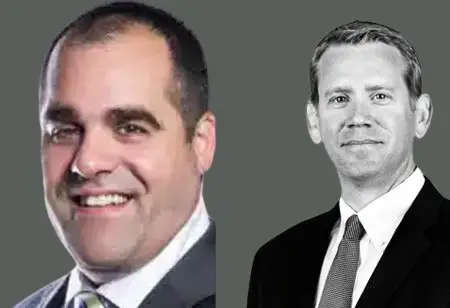Thank you for Subscribing to Construction Business Review Weekly Brief

Empowering The Future Of Residential Construction
Cara Shelton, a Master of Business Leadership and Innovation program at Northern Kentucky University-2025, is an accomplished Human Resources professional with over 18 years of experience in HR management, coaching, training and development. Currently serving as a Talent Acquisition Manager at Fischer Homes, Cara has been instrumental in developing policies that foster employee engagement and management competencies. She is recognized for her leadership in executive coaching and facilitating organizational growth through strategic HR initiatives.
Her career highlights include reducing recruitment cycles, enhancing employee retention programs, and securing grants for wellness initiatives.
In contrast to the linear recruitment models of the past, the present methodologies are more flexible. These approaches believe in the continuous upskilling and reskilling of employees to establish productivity. In this interview, Cara Shelton offers insights and strategies for redefining talent recruitment today. She discusses the positive effects of hiring first and training later.
The need for onboard training
The residential construction industry is full of exciting opportunities, though often underappreciated by those outside it. For insiders, the appeal is clear— building communities, transforming landscapes and creating spaces that impact people’s lives for generations. However, when it comes to attracting early talent, we find ourselves not just recruiting but also educating. Many young professionals, especially recent graduates, are unfamiliar with the tremendous career prospects on this side of the construction world, where innovation and creativity meet the pressing needs of a growing population. This gap is largely due to academic programs that place more emphasis on commercial construction, leaving residential pathways underexplored.
A future-friendly strategy
At Fischer Homes, we are tackling this challenge head-on. Our Chairman, Greg Fischer, is passionate about not just recruiting talent but fostering a genuine understanding of the residential sector’s potential. Through partnerships with universities like the University of Cincinnati, Northern Kentucky University and others, Fischer Homes is actively shaping curriculum to include a focus on residential construction. These efforts expose students to the industry early, highlighting the rewarding career paths in residential building and critically, the skilled trades that underpin the success of this business. The vision is clear: we aim to attract and cultivate the next generation of thought leaders and innovators as housing demand surges and technology revolutionizes construction.
In-depth upskilling
To keep pace with this growth, the industry must adopt a forward-thinking philosophy: “seek the talent, then train the skill.” The future of residential construction is being built today, not just with bricks and mortar, but with talent—the talent that will lead, inspire and innovate for decades to come. This approach upends traditional hiring models, emphasizing potential over immediate technical expertise. It is not enough to simply onboard new hires; the real work begins after talent has joined the team.
The future of residential construction is being built today, not just with bricks and mortar, but with talent—the talent that will lead, inspire and innovate for decades to come
Organizations must create robust development programs beyond surfacelevel training, focusing instead on building deep technical competencies and fostering leadership potential.
Through intentional and ongoing development, companies can transform promising talent into true experts who drive not only the company’s operational success but also its strategic evolution. This is how companies turn good talent into great talent, enabling their workforce to meet and exceed ambitious goals.
Opening the box of creativity
So, what is the biggest differentiator in an increasingly competitive construction landscape? It’s talent. Companies may have access to similar raw materials, technology platforms, or supply chains, but what they cannot replicate is the unique blend of individual strengths, insights, and perspectives that their people bring to the table. This human capital—the diverse skills, experiences, and mindsets of the workforce—is what truly defines a company’s culture and competitive edge. It drives innovation, fosters adaptability, and aligns a company’s values with its daily operations.
Therefore, investing in talent acquisition, continuous learning and sustained employee engagement is no longer just a nice-to-have but a necessity. These investments are what disrupt industries, spark creativity and fuel growth. When organizations dedicate resources to these strategic initiatives, they break free from stagnant processes, accelerate innovation and place an unwavering focus on achieving impactful results. Over time, this ensures not just organizational success but its longevity—an investment that pays dividends in the form of a more dynamic, resilient and future-ready company.








